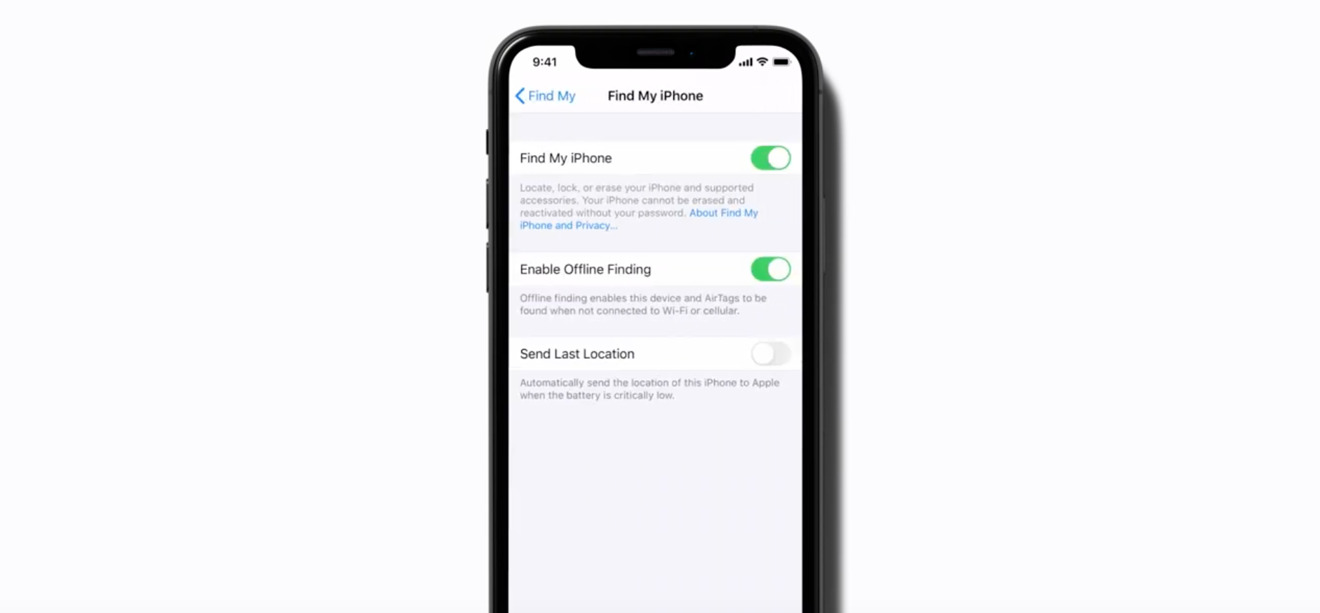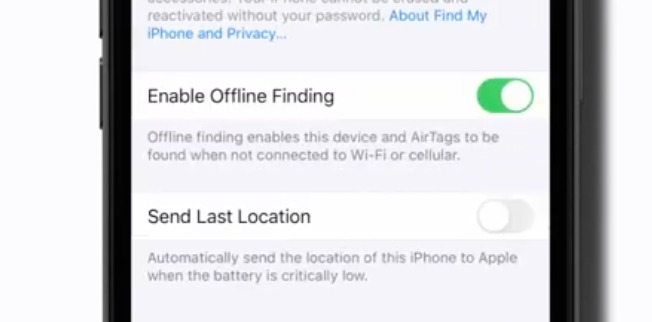The name "AirTags" has appeared in a brand new Apple support video, putting to rest any debate about what Apple will ultimately call its forthcoming wireless trackers that are expected to help users keep tabs on possessions beyond electronic devices.
The video, briefly published on Thursday, explicitly showed the "AirTags" name in an Apple menu. The product's name was listed under the "Enable Offline Finding" section of a video describing how to erase an iPhone.
Specifically, the image proves that the accessory can be "found when not connected to Wi-Fi or cellular." This has been predicted for some time, and leverages the UWB technology found in the iPhone, and obviously in the AirTags, to locate the lost device.
Apple's video was pulled by the company itself after about 15 minutes of availability, and less than 1500 views.
Rumors have swirled since 2019 about an Apple-produced tracker that works with the refreshed Find My app. All of the reports have suggested Apple would shift from just tracking lost Apple hardware, into locating other items. "Tag" hardware references found in June 2019 first alluded to AirTags' existence, and hinted at adding Tile-like functionality to the app.
Screenshots found in October 2019 showed an updated Find My app with a bottom bar with "People," "Devices," "Items," and "Me." In the screenshots, the AirTags are still referred to by their codename, "B389."
Other screenshots show the AirTags setup process, which will consist of pulling the tab on the AirTag and bringing it within range of an iPhone.
All of the leaks for the last nine months have suggested that AirTags were imminent. Back in September 2019, the usually reliable analyst Ming-Chi Kuo believed they would be released very soon. More recently, he suspected that they would be released in a March 2020 event that didn't happen.
 Mike Wuerthele
Mike Wuerthele








-m.jpg)






 Charles Martin
Charles Martin

 Malcolm Owen
Malcolm Owen
 William Gallagher
William Gallagher
 Christine McKee
Christine McKee
 Marko Zivkovic
Marko Zivkovic











13 Comments
I can't wait. I've used Tile and Trackr, but even before they were products I wanted Apple to make these because it would be more secure, be on by default on all devices, and just better. I can see them not working as well in countries that are nearly all Android, but that's not a major concern for me.
Up next, the “person with head exploding” emoji on iOS will be briefly replaced by “Tile logo with head exploding” emoji.
So what does Tile want? Apple to immediately cease any research or development of a competing product and to recommend Tile exclusively to Apple users? Because that’s what they sound like when they whine and cry to Congress about anti-competitive behavior. My local grocery store is putting more and more of its own branded products on the shelves and shoving name brands off. Is that anti-competitive behavior too? What rights does a store owner like Apple have in what it offers for sale?
Has anyone verified the actual video on apple’s YouTube channel or support website? (And not just a second hand capture) Because the spacing before “AirTags” looks inconsistent from the rest of the text.